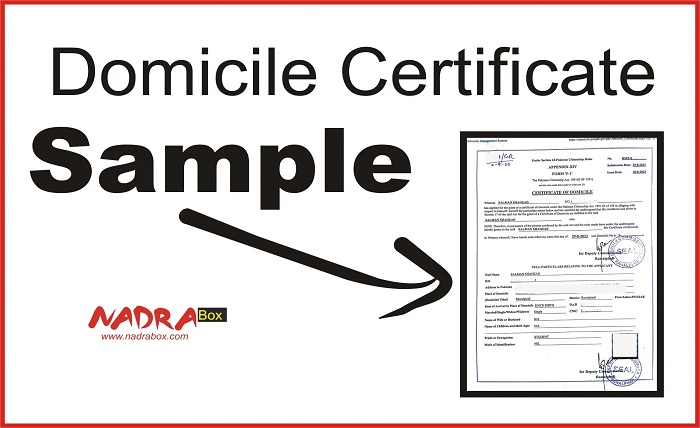Domicile Certificate: Your Guide to Understanding and Obtaining It

In today’s interconnected world, where people frequently relocate for work, education, and other opportunities, understanding and obtaining a domicile certificate becomes crucial. This document serves as an official confirmation of your permanent residency in a specific location, impacting various aspects of your life, including educational opportunities, employment prospects, and even property ownership.
What is a Domicile Certificate?
A domicile certificate is a legal document issued by the government authorities of a particular state or region that confirms your permanent residency within their jurisdiction. It specifies the place where you have established a fixed and permanent home and have the intention to remain indefinitely. This document differs from a residency certificate, which only confirms your current address and temporary stay.
Importance of Domicile Certificate:
A domicile certificate holds significance in various situations, including:
- Education: Many educational institutions, especially government-run ones, consider domicile status while offering admissions and scholarships. This certificate can provide you with significant benefits like preferential admission or reduced tuition fees.
- Employment: Certain government jobs and public sector undertakings reserve positions for candidates belonging to a specific domicile. Possessing a domicile certificate becomes mandatory to qualify for such opportunities.
- Property ownership: Some states in India restrict the purchase of land or property within their borders to individuals holding a domicile certificate of that state.
- Taxation: Your domicile state determines where you are liable to pay income tax. Having a domicile certificate can help clarify your tax obligations and avoid potential disputes.
- Other benefits: Various government schemes and welfare programs may offer specific benefits based on your domicile status. These might include access to subsidized housing, healthcare services, and other social welfare initiatives.
Who needs a Domicile Certificate?
While anyone can apply for a domicile certificate, it holds particular importance for individuals who:
- Relocate to a new state for work or education.
- Aim to apply for government jobs or scholarships.
- Wish to purchase property within a specific state.
- Need to clarify their tax liabilities due to relocation.
- Seek benefits from various government schemes and social welfare programs.
Procedure for Obtaining a Domicile Certificate:
The process for acquiring a domicile certificate varies across different states and regions. However, some general steps are typically involved:
- Identify the issuing authority: Research and identify the government department or office authorized to issue domicile certificates in your state. This could be the Revenue Department, Sub-Divisional Magistrate office, or a dedicated Domicile Certificate issuing authority.
- Gather required documents: Prepare the necessary documents as specified by the issuing authority. These typically include:
- Proof of identity (Aadhaar card, PAN card, Voter ID)
- Proof of residence (rental agreement, utility bills, property tax receipts)
- Educational certificates
- Birth certificate
- Passport
- Affidavit declaring your intention to reside permanently in the state
- Submit application: Visit the designated office and submit your application form along with the required documents. Pay the prescribed fees.
- Verification process: The authorities will verify your documents and conduct any necessary inquiries to confirm your permanent residency.
- Certificate issuance: Upon successful verification, the authorities will issue your domicile certificate.
Additional Points to Remember:
- Processing time for a domicile certificate can vary depending on the state and workload. Expect it to take anywhere between a few days to several weeks.
- Fees for obtaining a domicile certificate may also differ across states.
- Some states offer online application facilities for domicile certificates, making the process convenient and efficient.
- For minors, the application may be submitted by a parent or legal guardian.
- In case of any discrepancies or rejections, you may be required to submit additional documents or clarifications.
Conclusion:
A domicile certificate is a valuable document that plays a crucial role in various aspects of your life. By understanding its significance and following the proper procedures, you can secure this essential document and enjoy its benefits.




